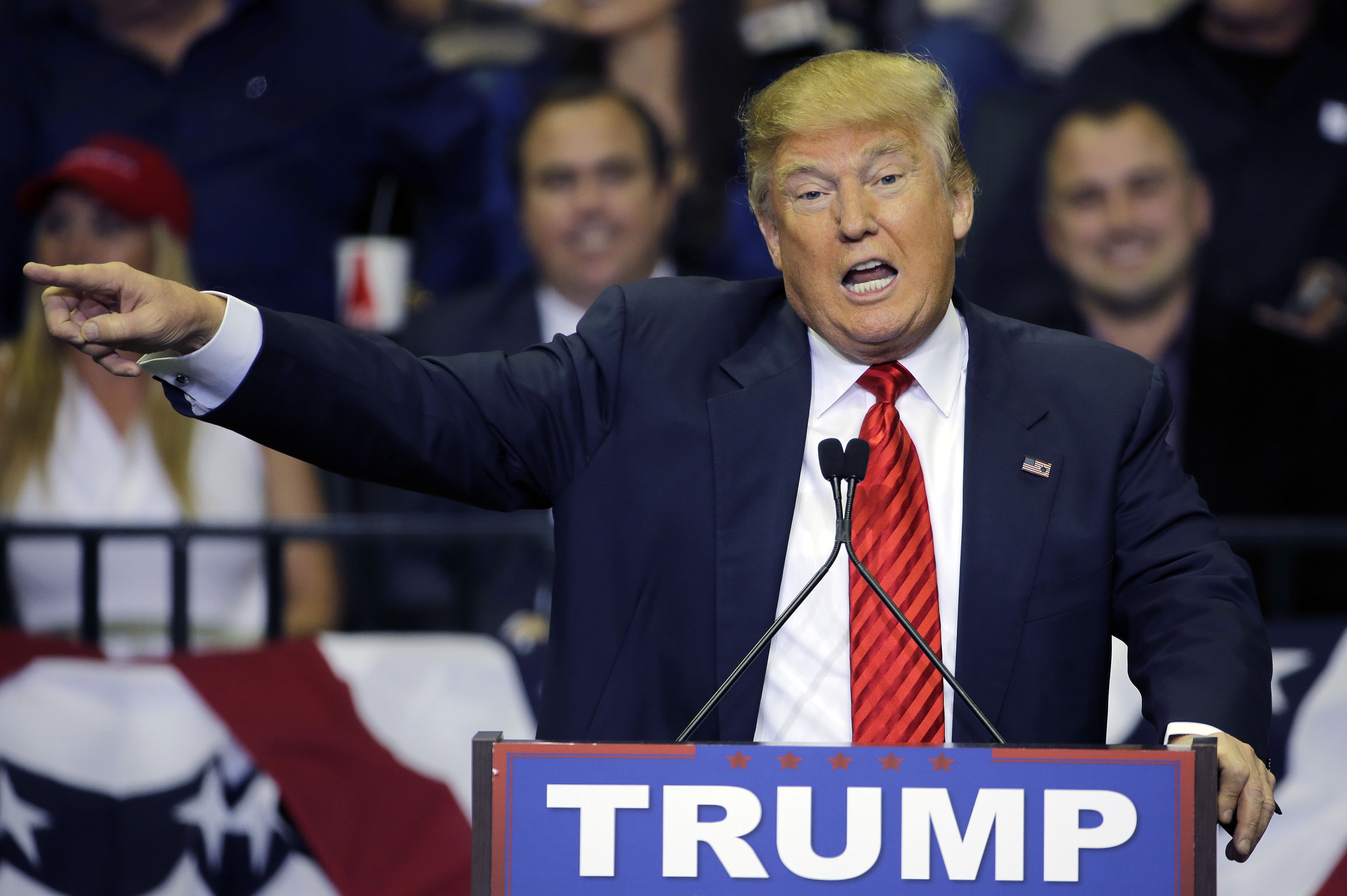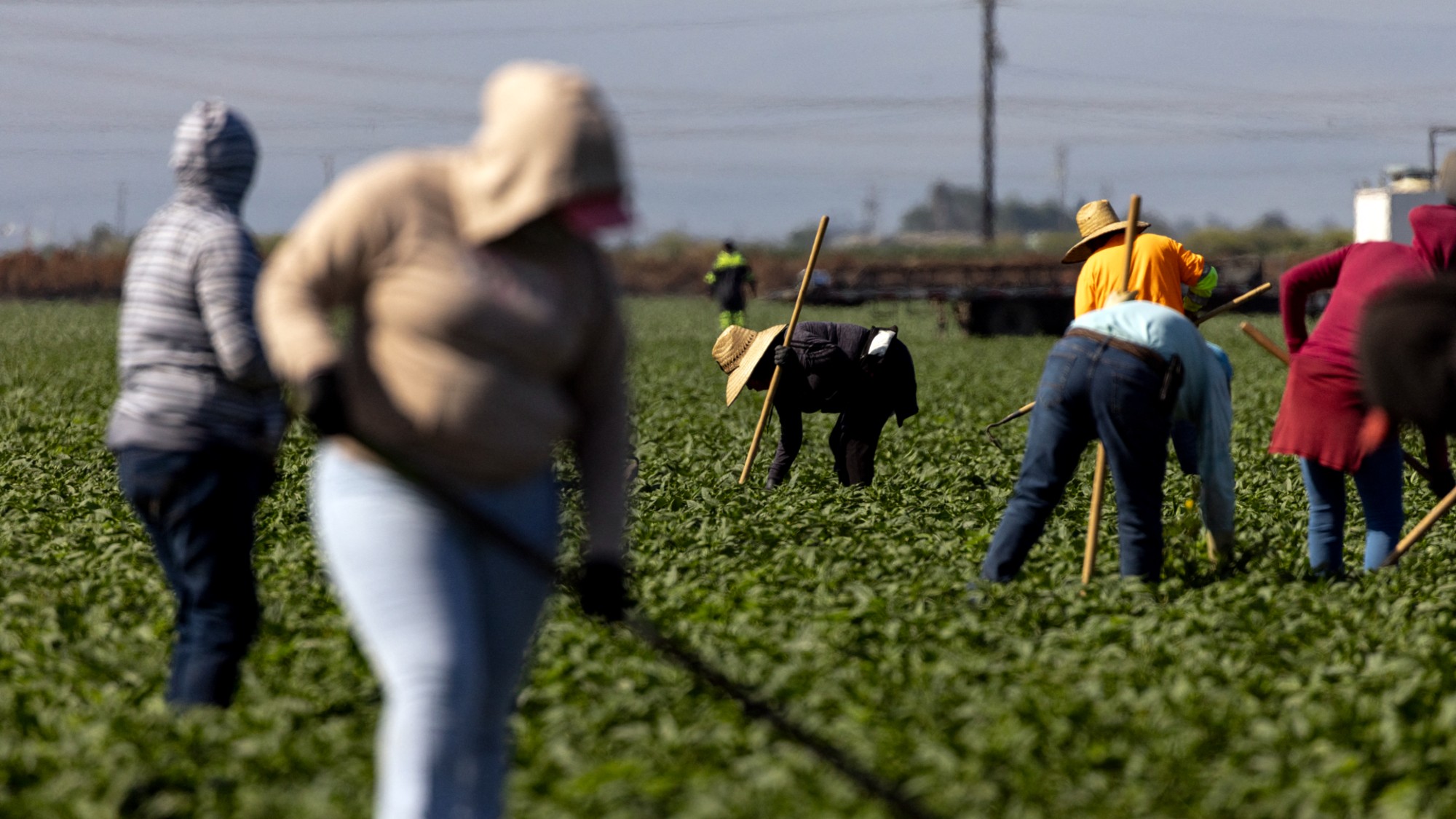Donald Trump keeps bashing China. That's immoral.
Taken at face value, what Trump's really arguing for is not "free trade" or "fair trade" but no trade at all.


America first, perhaps. But America only? That's the moral quandary raised by Donald Trump's protectionist attacks on free trade, particularly trade with China.
In speech after speech, and during the presidential debates, Trump argues that China and its supposedly brilliant trade negotiators have been "killing" America. The GOP presidential frontrunner claims that Beijing's superiority over Washington is evidenced by the massive trade deficit between the two nations, as well as the flow of U.S. manufacturing jobs to China during the 2000s. And until American workers have an "even playing field," President Trump would slap a big tariff on Chinese exports to America. President Trump would bring back manufacturing jobs. President Trump would bring back investment.
But Candidate Trump isn't making an argument just about economic policy. He's also de facto making an argument about morality and what obligation, if any, wealthy America owes the global poor. The number of Chinese in extreme poverty fell by half from 1980 through 2000, then by another two-thirds after China entered the World Trade Organization in 2001. Since 1980, in other words, more than 700 million Chinese have escaped extreme poverty. And that exodus is due in large part to capitalism in the form of foreign investment and trade. It's a story free marketeers should evangelize at every opportunity. But here's how billionaire businessman Trump sees one of mankind's greatest achievements, via his campaign website:
The Week
Escape your echo chamber. Get the facts behind the news, plus analysis from multiple perspectives.

Sign up for The Week's Free Newsletters
From our morning news briefing to a weekly Good News Newsletter, get the best of The Week delivered directly to your inbox.
From our morning news briefing to a weekly Good News Newsletter, get the best of The Week delivered directly to your inbox.
In January 2000, President Bill Clinton boldly promised China's inclusion in the World Trade Organization "is a good deal for America. … Since China joined the WTO, Americans have witnessed the closure of more than 50,000 factories and the loss of tens of millions of jobs. It was not a good deal for America then and it's a bad deal now. It is a typical example of how politicians in Washington have failed our country. [Trump]
There's some truth to Trump's argument about the harm from Chinese trade for some American workers. As China became a global factory floor, Chinese living standards rose sharply. But U.S. labor markets haven't adjusted as quickly as economic models suggested they would. Some regions were hit hard and never recovered. As economists David Autor, David Dorn, and Gordon Hanson write in their recent paper, "The China Shock," workers in sectors affected by trade "experience greater job churning and reduced lifetime income. At the national level, employment has fallen in U.S. industries more exposed to import competition, as expected, but offsetting employment gains in other industries have yet to materialize."
On the other hand, there have been gains to U.S. welfare — especially to that of lower-income Americans — from cheaper imports. Since poorer families spend a larger share of their income on such goods than wealthier families do, their inflation rate has been lower, and their purchasing power higher. A 2008 study taking this differential into account found it offset the rise in measured income inequality from 1994 through 2005.
But set those potential consumer gains aside for a moment. Even knowing what we now know about the possible impact on U.S. jobs, should Washington have somehow limited trade and overseas investment with China — even at the cost of higher global poverty? Certainly the humanitarian answer is "No." What's more, I'm not sure what set of plausible public policies could have significantly offset the one-time economic shock to advanced economies of hundreds of millions of low-wage workers fully entering the global trading system. There's also a longer-term economic benefit to the U.S. and the rest of the world from poor people getting richer, healthier, more educated, and adding their brainpower to the global intellectual stock for new invention and innovation. Yet while we should take into account the well-being of non-U.S. citizens, American workers can't be left to fend for themselves. Clearly we've long needed a stronger, pro-work safety net that helps the "losers" from trade through a variety of means including effective retraining, wage subsidies, and relocation assistance. While trade isn't the zero-sum game Trump seemingly imagines, there are trade-offs.
Perhaps this is overthinking Trumpism. At last weekend's Republican presidential debate, Trump criticized air-conditioner maker Carrier for plans to move a plant and 1,400 jobs to Mexico from Indianapolis. He also didn't like the idea of Chinese investors buying the 134-year-old Chicago Stock Exchange, the first-ever purchase of an American exchange by a Chinese company. So Americans shouldn't invest in other nations, and neither should they invest in us? Taken at face value, what Trump's really arguing for is not "free trade" or "fair trade" —but no trade at all.
A free daily email with the biggest news stories of the day – and the best features from TheWeek.com
James Pethokoukis is the DeWitt Wallace Fellow at the American Enterprise Institute where he runs the AEIdeas blog. He has also written for The New York Times, National Review, Commentary, The Weekly Standard, and other places.
-
 Mixed nuts: RFK Jr.’s new nutrition guidelines receive uneven reviews
Mixed nuts: RFK Jr.’s new nutrition guidelines receive uneven reviewsTalking Points The guidelines emphasize red meat and full-fat dairy
-
 Will regulators put a stop to Grok’s deepfake porn images of real people?
Will regulators put a stop to Grok’s deepfake porn images of real people?Today’s Big Question Users command AI chatbot to undress pictures of women and children
-
 ‘All of these elements push survivors into silence’
‘All of these elements push survivors into silence’Instant Opinion Opinion, comment and editorials of the day
-
 The billionaires’ wealth tax: a catastrophe for California?
The billionaires’ wealth tax: a catastrophe for California?Talking Point Peter Thiel and Larry Page preparing to change state residency
-
 Bari Weiss’ ‘60 Minutes’ scandal is about more than one report
Bari Weiss’ ‘60 Minutes’ scandal is about more than one reportIN THE SPOTLIGHT By blocking an approved segment on a controversial prison holding US deportees in El Salvador, the editor-in-chief of CBS News has become the main story
-
 Has Zohran Mamdani shown the Democrats how to win again?
Has Zohran Mamdani shown the Democrats how to win again?Today’s Big Question New York City mayoral election touted as victory for left-wing populists but moderate centrist wins elsewhere present more complex path for Democratic Party
-
 Millions turn out for anti-Trump ‘No Kings’ rallies
Millions turn out for anti-Trump ‘No Kings’ ralliesSpeed Read An estimated 7 million people participated, 2 million more than at the first ‘No Kings’ protest in June
-
 Ghislaine Maxwell: angling for a Trump pardon
Ghislaine Maxwell: angling for a Trump pardonTalking Point Convicted sex trafficker's testimony could shed new light on president's links to Jeffrey Epstein
-
 The last words and final moments of 40 presidents
The last words and final moments of 40 presidentsThe Explainer Some are eloquent quotes worthy of the holders of the highest office in the nation, and others... aren't
-
 The JFK files: the truth at last?
The JFK files: the truth at last?In The Spotlight More than 64,000 previously classified documents relating the 1963 assassination of John F. Kennedy have been released by the Trump administration
-
 'Seriously, not literally': how should the world take Donald Trump?
'Seriously, not literally': how should the world take Donald Trump?Today's big question White House rhetoric and reality look likely to become increasingly blurred
